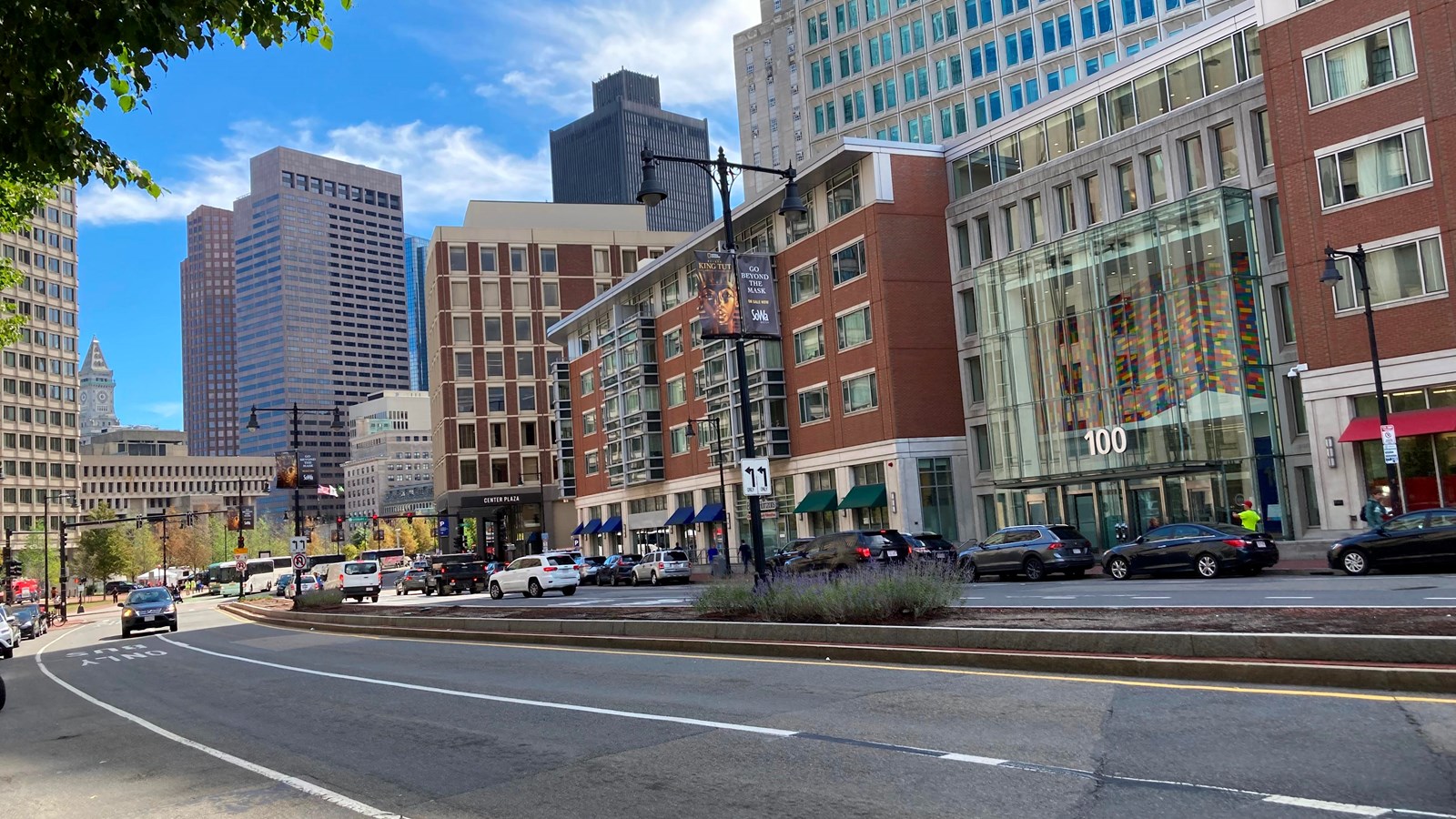Last updated: January 24, 2025
Place
Site of the Revere House Hotel

NPS Photo/Quigley
Described as "one of the most comfortable and homelike hotels in the country,"1 the Revere House Hotel hosted many notable guests during its years of operation. Located a few blocks from Beacon Hill's North Slope community, the hotel, like many spaces in Boston, served as a witness to militant abolitionism in the aftermath of the Fugitive Slave Law.
In April of 1850 Daniel Webster, prominent senator and famous orator from Massachusetts, arrived at the Revere House Hotel. A month prior, Webster had delivered his infamous "Seventh of March" speech, endorsing the Compromise of 1850 which included the new Fugitive Slave Law. Facing strong backlash in Boston for his support of the Compromise, Webster decided to deliver a speech from the portico of the Revere House. Standing on the front steps, Webster called upon Massachusetts residents to enforce the new Fugitive Slave Law, despite their misgivings of the law:
It is the question respecting the delivery of fugitives from service... There are, in regard to that topic, duties absolutely incumbent on the Commonwealth- duties imposed by the Constitution...She [Massachusetts] is bound and those persons are bound to the discharge of a duty- of a disagreeable duty. We call upon her to discharge that duty as an affair of high morals and high principles.2
In 1854, Webster's call for Massachusetts citizens to uphold this law by "discharging their duty" was severely tested with the arrest of 20-year-old freedom seeker Anthony Burns. Burns' enslaver, Col. Charles Suttle, stayed at the Revere House during the duration of Burns' trial and rendition back to enslavement. Abolitionists harassed Suttle from the moment he checked into the hotel. During their stay, authorities arrested Suttle and his colleague William Brent on the charge of conspiring to kidnap. Later released on bail, they remained under surveillance by the Boston Vigilance Committee and other anti-slavery groups. Suttle and Brent even had to relocate from the ground floor to an attic room with armed guards due to death threats.
Following the rendition of Anthony Burns, the hotel remained a popular destination for visitors to Boston until its destruction in a 1912 fire.
Footnotes
- Moses King, King's Handbook of Boston (Cambridge: Harvard College 1878), 58.
- "Mr. Webster in Boston," The Liberator (Boston, Massachusetts), May 3, 1850.
